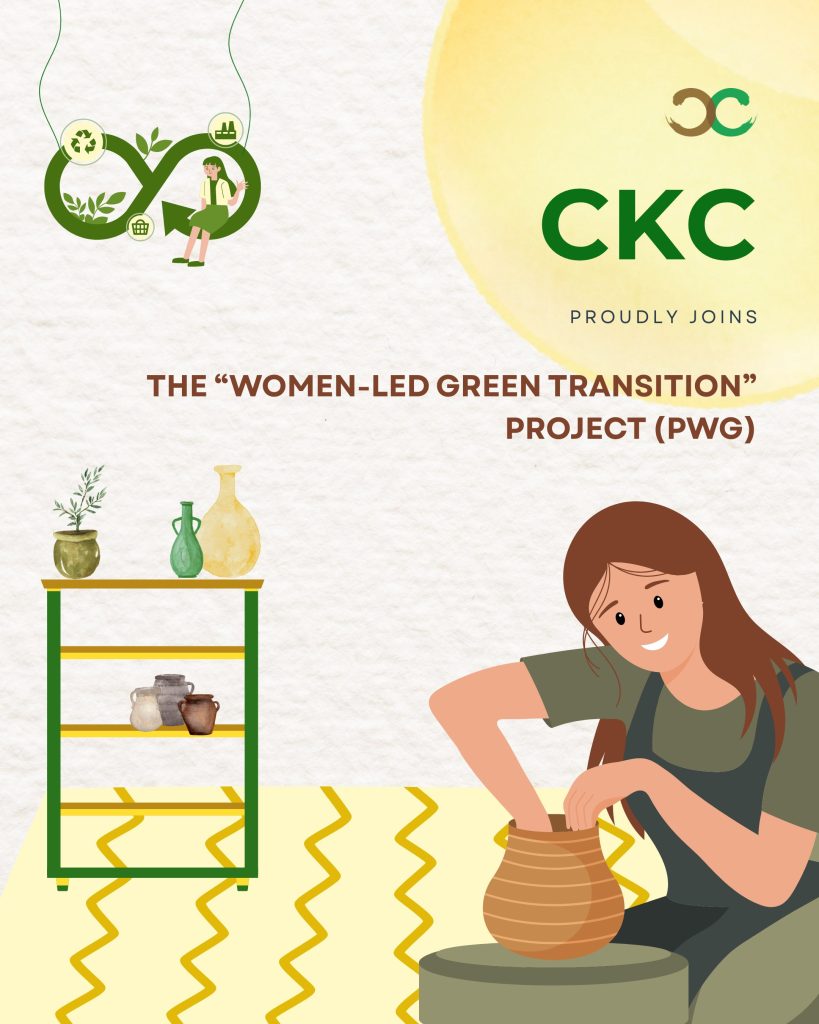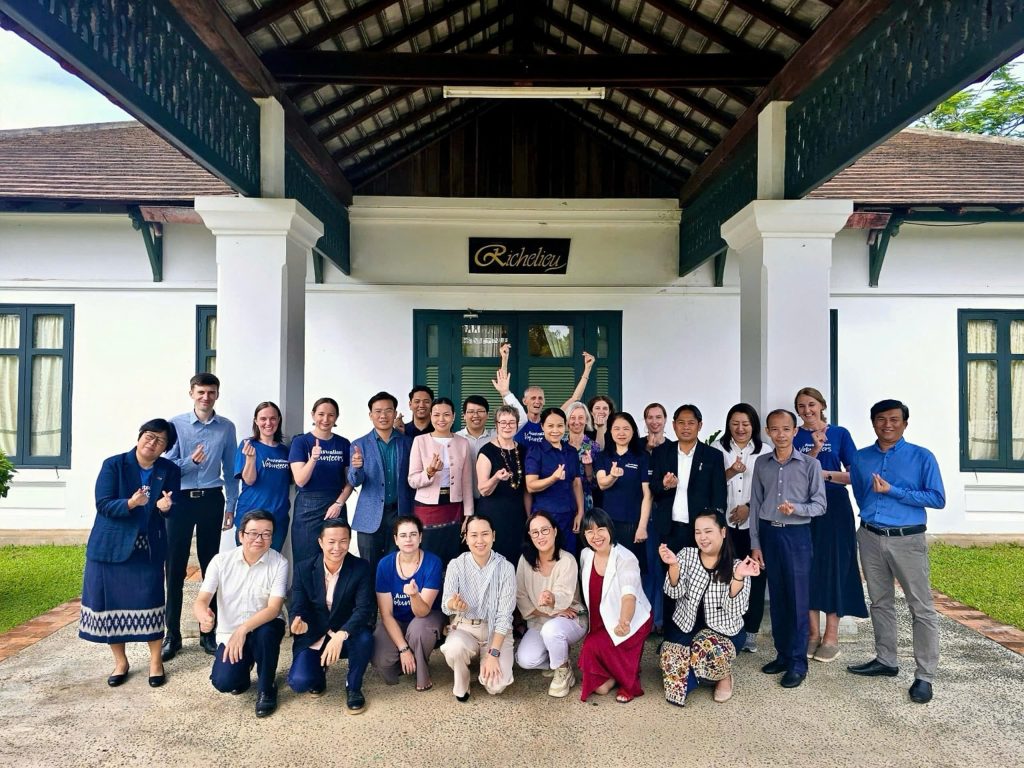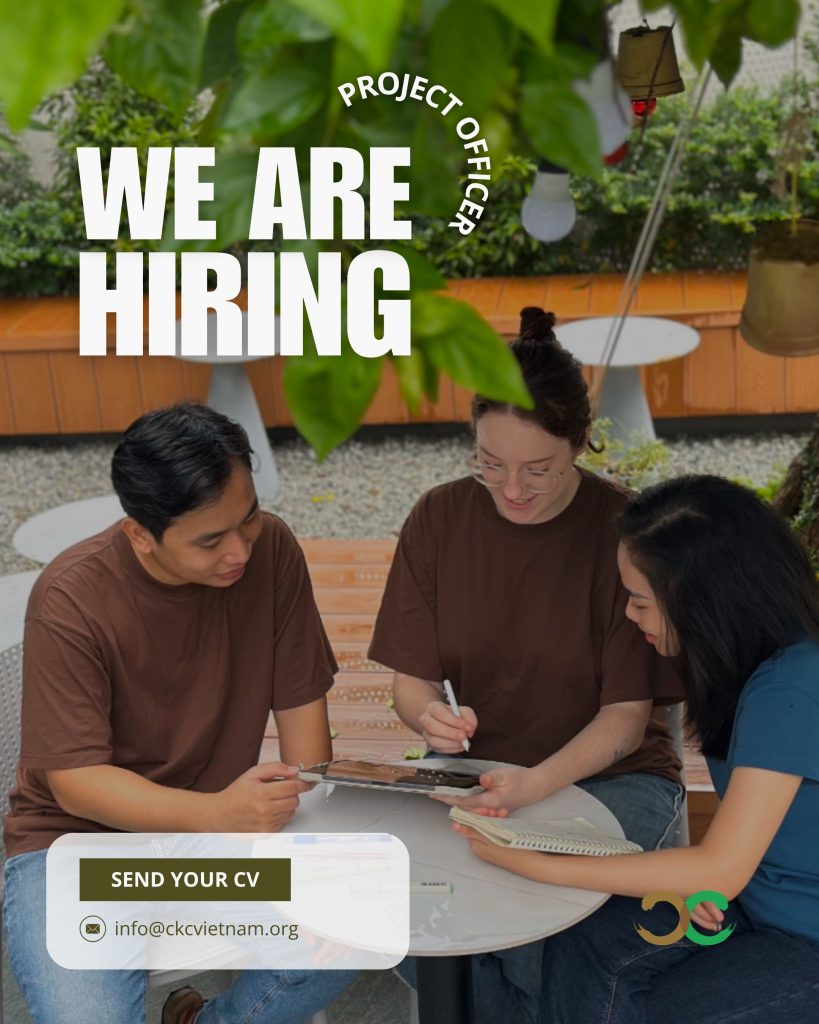
CKC is honored to be selected as one of the outstanding initiatives under the “Project on Supporting Women-Led Green Initiatives” (PWG), implemented by Oxfam in Vietnam. PWG is a key component of the “Women-led Green Partnership Programme” funded by the European Union (EU), which aims to promote women’s access to decent employment and entrepreneurial opportunities within the green and circular economy, while also strengthening their role in policy-making.
Through the initiative “Developing a women-led, eco-friendly craft village product supply chain serving service and tourism activities in Phong Dinh Ward, Hue City”, CKC focuses on connecting and empowering women from various groups to build supply chains for handicraft products that are culturally rich, practical, aesthetically refined, and environmentally sustainable.
This initiative continues CKC’s mission to enhance the roles and capacities of local women, while promoting sustainable livelihoods through the development and production of craft products for tourism, textiles, and services. We believe that multi-faceted collaboration among local women, government, communities, and women-led businesses is key to building inclusive and sustainable supply chains that drive the green transition at the local level.
The active and meaningful participation of local women is necessary to advancing a green economy, while preserving and promoting the unique cultural heritage of Hue’s traditional craft villages.
CKC remains committed to being a trusted connector and companion in the journey of women’s empowerment and sustainable community development.
(Han Nguyen)
- Consultancy services: Conducting gender-responsive analysis and planning in projects
- Community initiatives: Co-creating inclusive spaces where women, men, and gender-diverse individuals can thrive equally
- Applied research: Generating locally grounded knowledge that uplifts the voices and experiences of marginalized groups


Are you driven to make a real difference in people’s lives through research, planning, and social development? The Center for Knowledge Co-Creation and Development Research (CKC) is looking for a motivated and energetic Project Officer to join our growing team in Hue city, Vietnam.
About CKC
CKC is an independent non-profit research center based in Hue, Vietnam. We specialise in social planning and sustainable development studies, which empower disadvantaged groups including women, people with disabilities, and ethnic minorities. Our key areas of focus include:
- Impact assessments (social, gender, human rights, and indigenous people);
- Community development;
- Gender equality and inclusion;
- Social planning and surveys;
- Project management; and
- Sustainable development research.
Position summary
CKC is seeking to recruit one (01) Project Officer to support the implementation of our ongoing and upcoming projects. The successful candidate will be responsible for the day-to-day management of field-based research and development projects, ensuring timely and quality delivery of project outputs, team coordination, and compliance with CKC’s policies and standards.
Key Responsibilities
- Manage and coordinate field projects of various scales across multiple thematic areas,
- Supervise and support team members and field personnel as you are responsible for,
- Ensure that projects are implemented in accordance with approved timelines, budgets, and methodologies,
- Prepare project reports and documentation in line with CKC’s quality requirements,
- Help develop methods of project initiation, execution, and delivery,
- Maintain effective communication with local stakeholders, communities, and project partners.
Application Procedure
- Interested candidates are invited to submit a CV and Cover Letter in English to info@ckcvietnam.org. Please include “CKC Project Officer – [Your Full Name]” in the subject line.
- The deadline for submission is [31 July 2025].
Only shortlisted candidates will be contacted for an interview. - For more information about CKC and our work, please visit:
🔗 LinkedIn: CKC Vietnam
Please find more details of the Job Description here.
